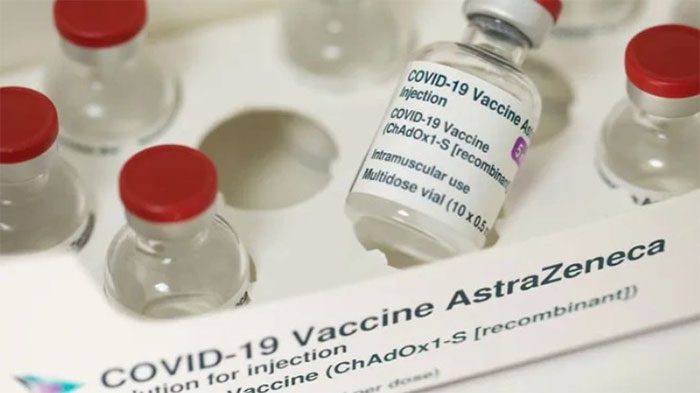Scientists have provided a new explanation for why Covid-19 vaccines containing adenovirus—such as those from AstraZeneca and Johnson & Johnson—carry a risk of severe blood clots.
The rare blood clots associated with some early Covid-19 vaccines (which are no longer in use) are AstraZeneca and Johnson & Johnson (J&J) vaccines, and may result from two uncontrolled immune reactions occurring simultaneously.
One of these immune reactions was already known, but the second one, published in the journal Blood, represents a new discovery.
This finding helps explain how the clotting condition develops and points to better treatment methods, as well as suggests ways to create safer vaccines for those susceptible to side effects.

Covid-19 vaccine produced by AstraZeneca carries a risk of rare clotting disorder – (Photo: LIVE SCIENCE).
A Rare Side Effect of the Vaccine
The clotting disorder associated with the vaccine, known as vaccine-induced immune thrombotic thrombocytopenia (VITT), is very rare and is linked to the two Covid-19 vaccines from Johnson & Johnson (J&J) and AstraZeneca.
Both shots contain a modified common cold virus called Adenovirus, which has been altered so that it cannot infect cells.
These viruses are modified to carry a piece of DNA from the SARS-CoV-2 virus, the coronavirus that causes Covid-19, into the body.
Unlike the Covid-19 vaccines from Moderna and Pfizer-BioNTech, which contain RNA, the J&J and AstraZeneca vaccines do not require ultra-cold storage, making them more accessible in areas facing storage challenges.
Shortly after the rollout of the J&J and AstraZeneca vaccines, doctors began to report cases of blood clots—very similar to a previously known disorder called heparin-induced thrombocytopenia (HIT).
Dr. Andreas Greinacher, a coagulation disorder specialist at the University Hospital Greifswald in Germany, noted that about 20-30 years ago, HIT affected 3.5% of patients receiving knee or hip replacements. In these patients, heparin—a blood thinner commonly used to prevent clots—actually caused rapid clotting.
The adenovirus-based Covid vaccine produces a condition similar to HIT, although scientists have given it a new abbreviation, VITT, to reflect its different origin.
Researchers report that approximately 1 in 50,000 people under 50 who receive the vaccine develop blood clots, and about 1 in 100,000 people aged 50 and older experience the same.
Dr. Greinacher explained: “Our major goal now is to identify which factor in the vaccine is causing this condition. Once identified, I am sure there are very smart biotech companies that can modify the adenovirus vector to eliminate this factor.”
Clarifying VITT
VITT was first observed in patients who received the Covid-19 vaccine in February 2021.
Scientists soon discovered that it was associated with PF4, a chemical signal released by platelets that causes blood cells to form clots.
In some rare cases, after receiving an adenovirus-based vaccine, the body produces antibodies against PF4. These antibodies bind to PF4 and form clusters, which can then attach to receptors known as Fc on other platelets. This activation of platelets leads to rapid clotting reactions.
New blood studies show that PF4 alone also activates a second receptor that causes platelets to aggregate. This may be the second reason why the clotting process becomes disordered.
Dr. Nazy indicated that new research shows there are actually two different ways PF4 operates in VITT. These two pathways are not mutually exclusive and can work in parallel.
Phillip Nicolson, an associate professor of clinical cardiology at the University of Birmingham (UK) and the lead of the new study, told Live Science: “What we have shown is that, in addition to that antibody-activating factor, PF4 itself binds to platelets and activates them, creating a double effect. This may be why clotting occurs at a harmful level.”



















































